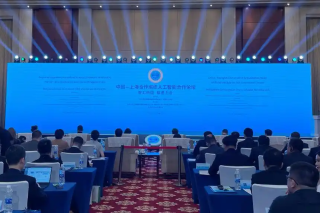Jingdong Drum
Jingdong Drum is a performing form of drum narration and drum music with dialects in the east area of Beijing. It's performed by one person standing to sing with drums, accompanied by others with Sanxian and dulcimers respectively. It appeared roughly in the middle period of the Qing dynasty and had different names in different periods and in different places, such as Leting Tune, Pinggu Tune Drum, Pinggu Tune, Leting Tune Drum, Siping Tune Drum, Leting Drum (although called the same, it's different from Leting Drum which appeared and became popular in Hebei Leting County),etc. Jingdong Drum originated from Hebei's Sanhe, Xianghe and Tianjin's Baodi areas, and was popular in Hebei's Langfang, Chengde, Baoding, Tangshan, Beijing's Huairong District and Tianjin's Baodi areas. When it entered Tianjin at the beginning of the 20th century, it performed at small-scale performance venues, mainly focusing on full-length programs. In the early 1930s, Liu Wenbin from Baodi, Tianjin performed the The Case of Liu Yong on Tianjin Commercial Radio, which was greatly loved by the general public. The influence of the Jingdong Drum was gradually expanded, and later it spread into Beijing, Tangshan and other places.
Before 1949, there were many famous artists of the Jingdong Drum, including Deng Diankui, Yu Qi, Wang Xianzhang, Liu Junhai, Fu Shiting, Zhang Shicheng, Shi Jinrong, Wang Peichen, Wei Xigeng, Liu Wenbin, Qi Wenzhou, among others. The traditional repertoire and books are very rich, including short drum repertoire such as Rat vs Cat, Yangbajie's Outing in Spring; drum books like Bao Zheng was Born, The Case of Liu Yong; and lengthy drum books General Yang, General Hu and so on. In 1933, when Yu Jingyuan, an artist from Xianghe performed Shi Lan on Tianjin Renchang Radio, it's called "Jingdong Drum" and thus the name came into being.
After 1949, the performance of the Jingdong Drum was best known by Dong Xiangkun, an amateur artist from Baodi, Tianjin. On the basis of retaining traditional singing voices, he changed the performance language from the original use of local dialects in the east area of Beijing to Putonghua, further processed and standardized the voices, and continuously created new programs suitable to the development of the times, which won him the audience's deep love. Under the unremitting efforts of Dong Xiangkun and others, the development of the Jingdong Drum hit its climax in the 1960s and the 1970s, and its music genres cast influence throughout the North.
Since the beginning of the 21st century, due to the decrease in number of successors and the lack of performances, the development of the Jingdong Drum has encountered an unprecedented crisis and support and protection is needed urgently.

Copyright ©
Tianjin Municipal Government. All rights reserved. Presented by China Daily.
京ICP备13028878号-35



